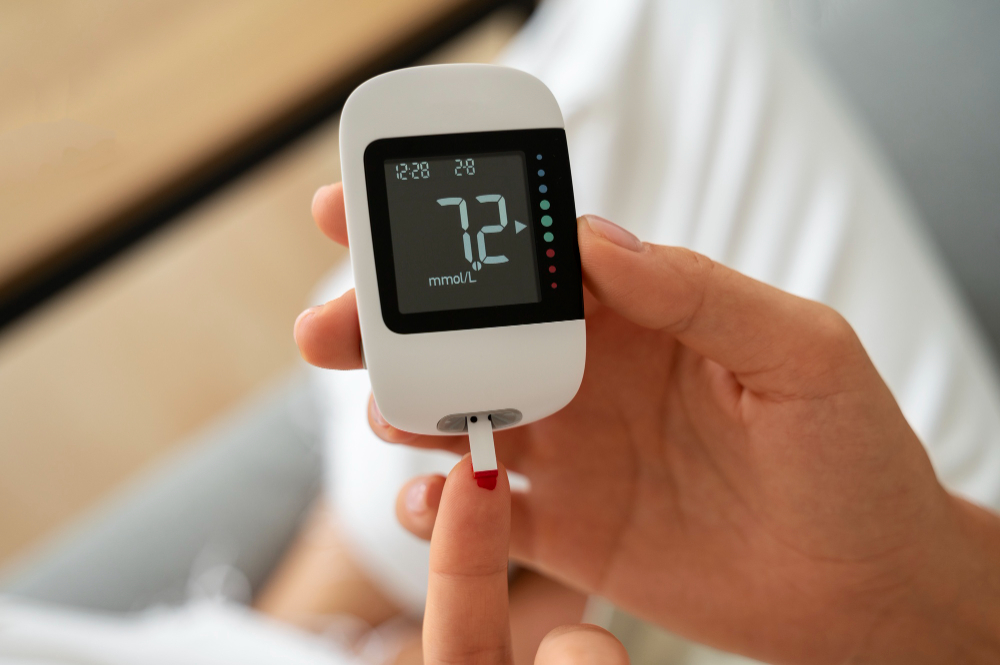World Diabetes Day is celebrated every November 14. This year, World Diabetes Day has the theme "Access to Diabetes Care" or Access to equal diabetes care.
The theme aims to make it easier for patients or diabetics around the world to get access to the right care. In line with the theme, World Diabetes Day is aimed at educating the public and raising awareness about the dangers of diabetes or sugar disease.
Moreover, diabetes does not only afflict the elderly (Elderly), but can also be experienced by babies to people with young age. For this reason, it is important to know what diabetes is, the causes, symptoms and characteristics of diabetes at a young age:
What is Diabetes?
Diabetes mellitus, commonly known as diabetes, is a group of diseases that affect how the body uses glucose (sugar) from food for energy. Glucose is the main source of energy for the body, and insulin, a hormone produced by the pancreas, helps the body use glucose effectively.
There are several types of diabetes, including:
Type 1 diabetes
In type 1 diabetes, the immune system attacks the insulin-producing cells in the pancreas. This results in very low or no insulin production. Type 1 diabetes generally appears in childhood or adolescence, and sufferers require insulin injections to process glucose.
Type 2 Diabetes
Type 2 diabetes is more common and usually develops in adults, although an increasing number of cases involve children and adolescents. In type 2 diabetes, the body does not produce or use insulin effectively. Risk factors involve lifestyle, genetics, and environmental factors. Management of type 2 diabetes often involves lifestyle changes, medications, and sometimes insulin.
Gestational Diabetes
This type of diabetes occurs during pregnancy when the body cannot produce enough insulin to meet the additional needs during pregnancy. This may increase the risk of type 2 diabetes in the future.
Diabetes Symptoms to Watch Out for
Common symptoms of diabetes include frequent urination, excessive thirst, unintentional weight loss, fatigue, and wounds that are difficult to heal. Complications of diabetes can include long-term health problems such as heart disease, nerve damage, visual impairment, and kidney problems.
Diabetes management involves managing blood glucose levels, weight control, regular exercise, and insulin therapy or certain medications. It is important to get diagnosis and treatment from a healthcare professional to effectively manage diabetes and prevent serious complications.
Characteristics of Diabetes at a Young Age
Although diabetes is usually associated with older age, more and more cases of diabetes are appearing among young people. Here are some of the characteristics of diabetes at a young age:
Frequent Urination (Polyphagia)
Increased levels of sugar in the blood can lead to increased urine production, so young diabetics often feel the need to urinate more frequently.
Excessive Thirst (Polydipsia)
Due to high fluid loss through frequent urination, young diabetics tend to feel very thirsty and require more fluid intake.
Unreasonable Weight Loss
Although it may seem contradictory, unexplained weight loss can be a sign of diabetes. This is because the body loses energy through excessive urination.
Persistent Hunger
Despite having eaten, young diabetics can feel constantly hungry as the body is unable to use glucose effectively.
Easily Fatigued
Since the body cannot use glucose properly, the energy required for daily activities may decrease, leading to fatigue and weakness.
Vision Impairment
Changes in blood sugar levels can affect vision. Young diabetics may experience blurred or blurry vision.
Wounds Difficult to Heal
People with diabetes tend to experience a decrease in the body's ability to heal wounds. Cuts, abrasions, or infections can be difficult to heal and can potentially develop into more serious problems.
Pain or Tingling in the Feet and Hands
Neuropathy or nerve damage can occur in people with diabetes, causing symptoms such as tingling or pain, especially in the feet and hands.
It is important to remember that these symptoms do not necessarily indicate diabetes, and there are many other factors that can cause similar symptoms. If there is any concern about the possibility of diabetes, it is best to consult a healthcare professional for an accurate diagnosis. Blood tests and other medical examinations can help confirm whether a person has diabetes or not. (Aq/PRT)









